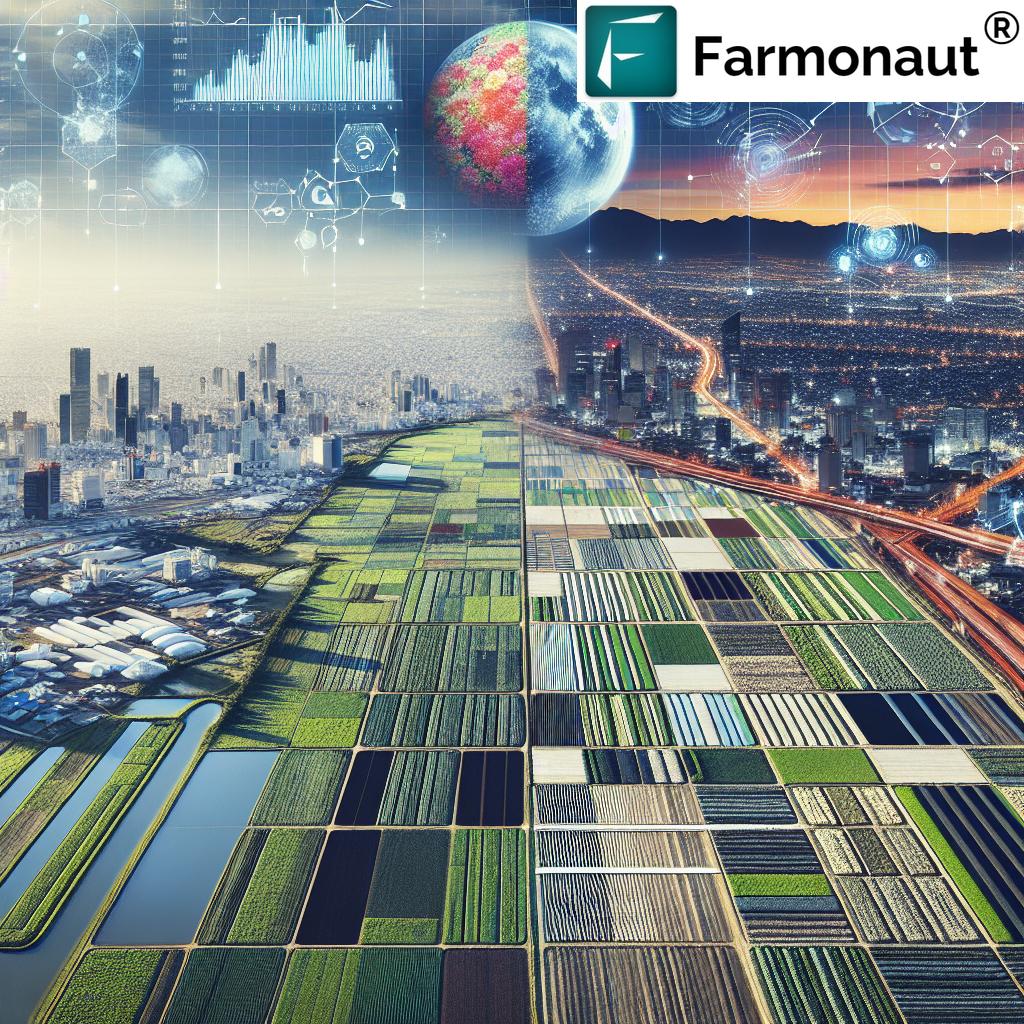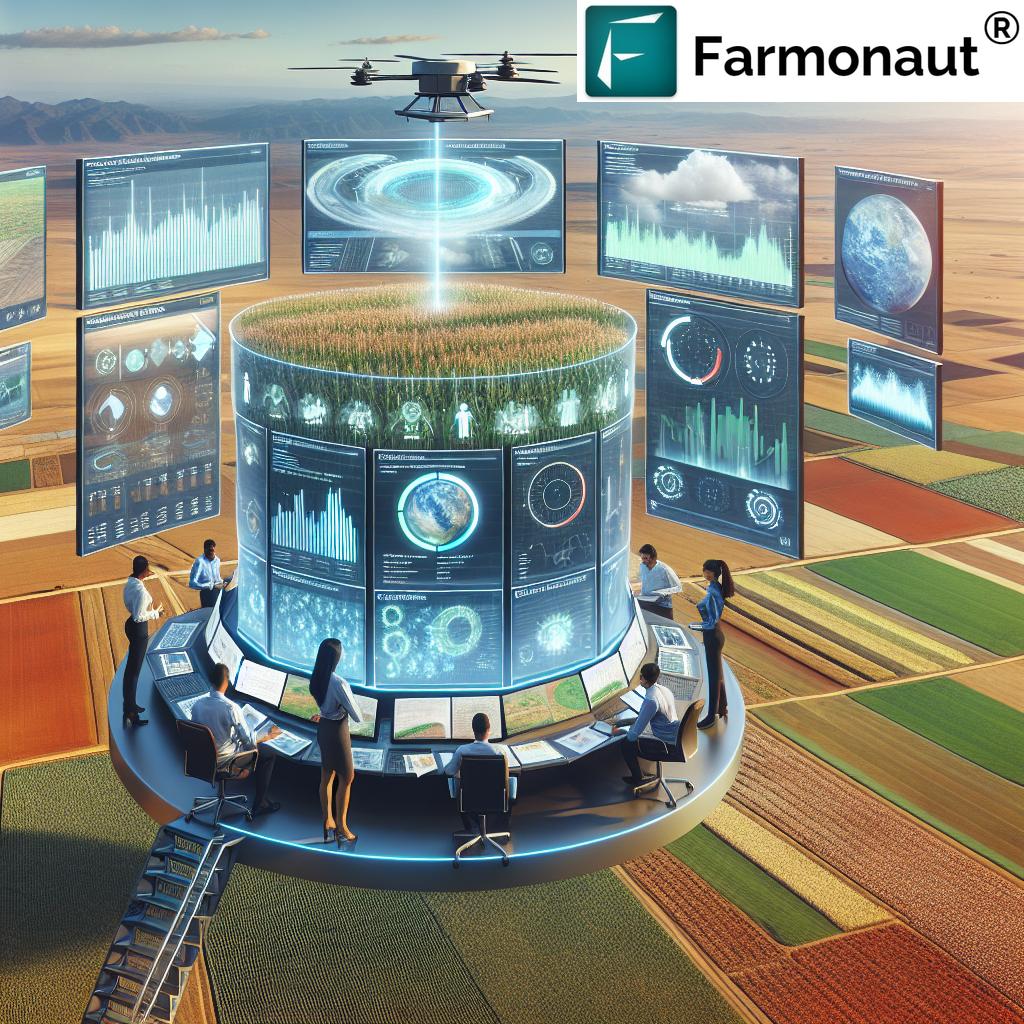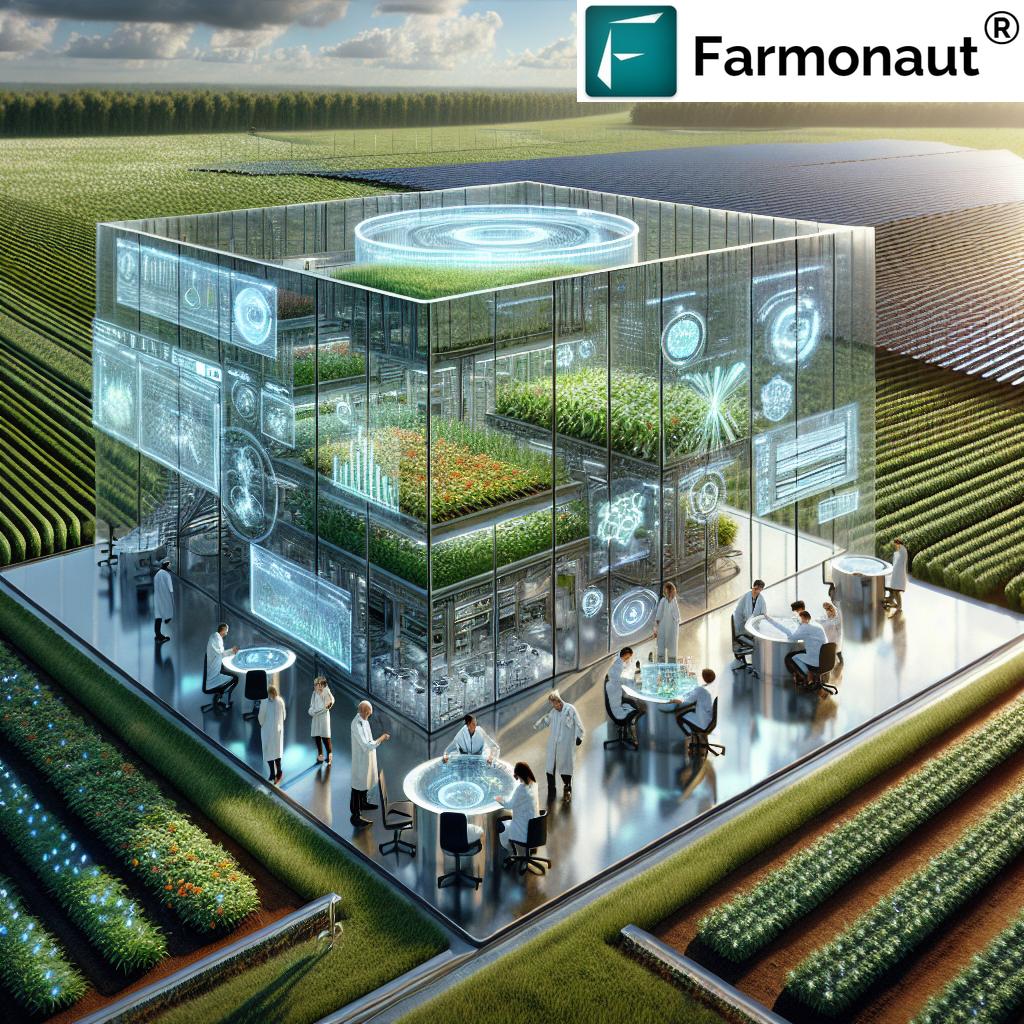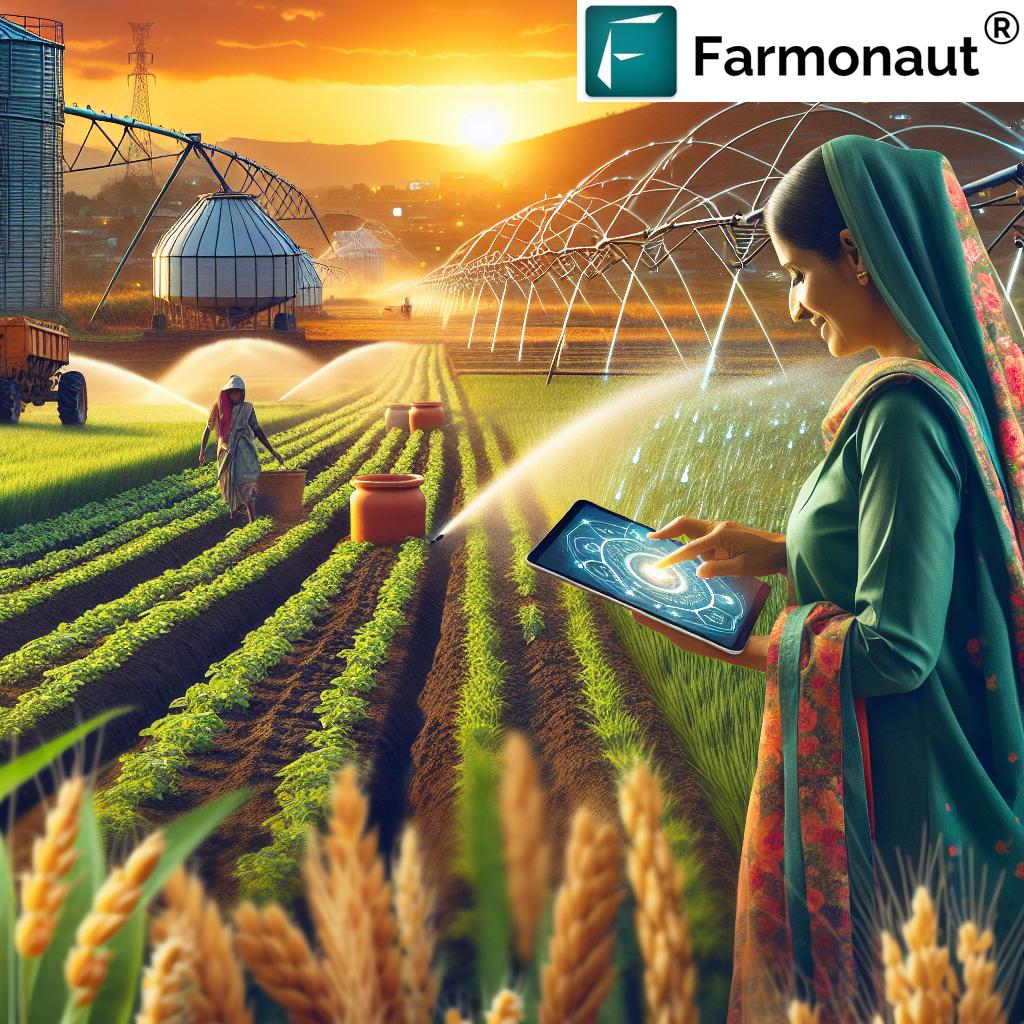Revolutionizing AgTech: How Microbiome Innovations Are Shaping Indonesia’s Sustainable Food Future
“Indonesian biotech startup secures seed funding, aiming to develop microbiome-based products for skincare and nutrition.”
In the ever-evolving landscape of agricultural technology (agtech), we are witnessing a revolutionary shift that promises to reshape the future of food production and sustainability. At the forefront of this transformation is the innovative use of microbiome technology in agriculture, particularly in Indonesia and across Southeast Asia. As we delve into this exciting realm, we’ll explore how these groundbreaking advancements are not only revolutionizing the agtech industry but also paving the way for a more sustainable and secure food future.
The Rise of Microbiome Technology in Agriculture
Microbiome technology in agriculture represents a paradigm shift in how we approach farming and food production. By harnessing the power of microscopic organisms living in soil, plants, and animals, we’re unlocking new potentials for crop yield, pest resistance, and overall agricultural sustainability.
- Enhanced soil health and fertility
- Improved plant growth and resilience
- Natural pest and disease management
- Reduced reliance on chemical inputs
These advancements are particularly crucial for countries like Indonesia, where agriculture plays a vital role in the economy and food security is a pressing concern. The integration of microbiome research in farming is opening new avenues for sustainable food production technologies that could revolutionize the industry.
Sustainable AgTech Innovations: A Global Perspective
Across the globe, sustainable agtech innovations are gaining momentum, attracting significant investment and attention from both the private sector and governments. These innovations span a wide range of applications, from precision agriculture to personalized nutrition solutions.
“Global agtech trends focus on sustainable food production, with microbiome research playing a key role in agricultural innovation.”
Let’s take a closer look at some of the key areas where microbiome technology is making a significant impact:
Precision Agriculture and Microbiome
Precision agriculture, enhanced by microbiome research, is revolutionizing farming practices. By leveraging data-driven insights about soil microbiomes, farmers can optimize their resource use, leading to:
- Targeted application of fertilizers and pesticides
- Improved water management
- Enhanced crop yields
- Reduced environmental impact
This approach aligns perfectly with the growing need for sustainable food production technologies, addressing both productivity and environmental concerns.
Personalized Nutrition Solutions
The intersection of microbiome research and nutrition is opening up exciting possibilities for personalized dietary recommendations. This emerging field considers the unique gut microbiome composition of individuals to tailor nutritional advice, potentially leading to:
- Improved digestive health
- Enhanced nutrient absorption
- Better overall well-being
As we continue to unravel the complexities of the human microbiome, we expect to see more innovative products and services in this space, particularly from biotech startups focused on health and wellness.
Biotechnology for Food Security
Biotechnology plays a crucial role in addressing global food security challenges. By leveraging microbiome research, scientists are developing crops that are:
- More resistant to pests and diseases
- Better adapted to changing climate conditions
- Higher in nutritional value
These advancements are particularly important for regions like Southeast Asia, where food security is a pressing concern amidst growing populations and climate change impacts.
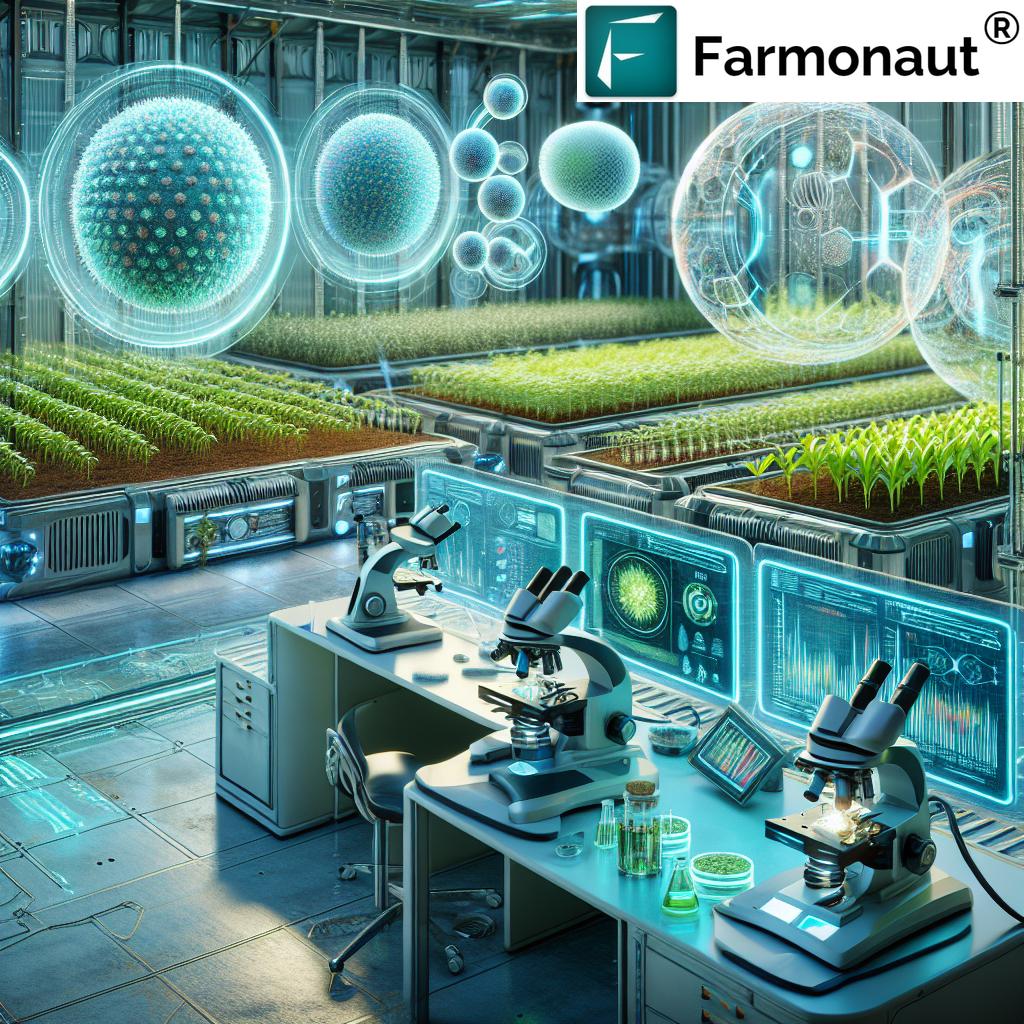
AgTech Trends in Southeast Asia: Focus on Indonesia
Southeast Asia, particularly Indonesia, is emerging as a hotbed for agtech innovation. The recent seed funding secured by an Indonesian biotech startup highlights the growing interest in leveraging microbiome technology for various applications, from skincare to nutrition.
Key trends we’re observing in the region include:
- Increased investment in agtech startups
- Growing focus on sustainable farming practices
- Rising adoption of precision agriculture techniques
- Expansion of biotech applications beyond agriculture
These trends are shaping the future of agriculture in Indonesia and beyond, promising a more sustainable and efficient food production system.
The Role of Gut Health in Agriculture
An intriguing development in agtech is the growing recognition of the importance of gut health, not just in humans but also in livestock. Research has shown that a healthy gut microbiome in animals can lead to:
- Improved feed conversion efficiency
- Enhanced immune function
- Reduced need for antibiotics
This focus on gut health and agriculture is driving innovation in animal feed formulations and probiotics, contributing to more sustainable livestock farming practices.
AgriTech Startup Funding: A Global Perspective
The agritech sector is experiencing a surge in startup funding globally, with investors recognizing the potential of innovative technologies to transform agriculture. This trend is particularly evident in emerging markets like Indonesia, where startups are leveraging local knowledge and global technologies to address specific agricultural challenges.
Key areas attracting investment include:
- Precision farming technologies
- Biotech solutions for crop and soil health
- Supply chain optimization tools
- Farm management software
The influx of capital is accelerating the development and adoption of these technologies, driving the transformation of traditional farming practices.
Microbiome Research in Farming: Current State and Future Prospects
Microbiome research in farming is rapidly evolving, offering exciting possibilities for sustainable agriculture. Current areas of focus include:
- Soil microbiome analysis for improved crop health
- Development of microbial inoculants to enhance plant growth
- Exploration of beneficial plant-microbe interactions
- Use of microbiome data for predictive modeling in agriculture
As this field advances, we anticipate seeing more targeted and effective solutions for various agricultural challenges, from pest management to nutrient uptake optimization.
Sustainable Food Production Technologies
The integration of microbiome research with other sustainable food production technologies is creating a synergistic effect, amplifying the potential for positive change in agriculture. Some promising technologies include:
- Vertical farming systems optimized with microbiome-based nutrients
- Precision fermentation for alternative protein production
- AI-driven crop management systems incorporating microbiome data
- Bioengineered crops with enhanced microbiome interactions
These technologies are not only increasing production efficiency but also reducing the environmental footprint of agriculture, aligning with global sustainability goals.
The Indonesian Context: Challenges and Opportunities
Indonesia, as an archipelagic nation with diverse agricultural landscapes, faces unique challenges and opportunities in adopting agtech innovations. The country’s commitment to food security and sustainable development makes it a prime candidate for microbiome-based agricultural solutions.
Key challenges include:
- Diverse soil types and climatic conditions across islands
- Limited access to technology in remote farming communities
- Need for localized research and adaptation of global technologies
However, these challenges also present opportunities for innovative startups to develop tailored solutions that address Indonesia’s specific needs.

Global Comparison: AgTech Microbiome Innovations
| Region/Country | Notable Startups | Main Focus Areas | Estimated Investment (USD millions) | Key Sustainable Agriculture Applications | Potential Impact on Food Security |
|---|---|---|---|---|---|
| Indonesia | Nusantics | Skincare, Nutrition, Crop Health | 10-20 | Microbiome-based fertilizers, Precision agriculture | High |
| United States | Indigo Agriculture, Pivot Bio | Soil Health, Nitrogen Fixation | 500+ | Microbial seed treatments, Bioengineered crops | High |
| Europe | Evonik, Novozymes | Animal Nutrition, Enzyme Production | 200-300 | Probiotic feed additives, Biofertilizers | Medium |
| China | BGI Group | Genomics, Crop Improvement | 100-200 | Genetically modified crops, Precision breeding | High |
| India | Bioprime Agrisolutions | Crop Stress Management | 50-100 | Climate-resilient crop varieties, Biostimulants | High |
This comparison highlights the global nature of microbiome innovations in agriculture, with each region focusing on specific areas that align with their agricultural needs and challenges. Indonesia’s emerging position in this landscape is noteworthy, particularly given the recent investments in biotech startups like Nusantics.
The Role of Technology in Advancing Microbiome Research
Advancements in technology play a crucial role in accelerating microbiome research and its applications in agriculture. Key technological enablers include:
- Next-generation sequencing for rapid microbiome analysis
- Artificial intelligence for data interpretation and predictive modeling
- IoT sensors for real-time monitoring of soil and plant health
- Blockchain for traceability in the agricultural supply chain
These technologies are enabling researchers and farmers to gain deeper insights into microbial communities and their impacts on agriculture, leading to more informed decision-making and targeted interventions.
For those interested in leveraging cutting-edge technology for agriculture, Farmonaut offers innovative solutions. Check out our web app, Android app, and iOS app for advanced farm management tools.
The Impact on Food Security and Sustainability
The integration of microbiome innovations in agriculture has far-reaching implications for food security and sustainability. By enhancing crop yields, improving resource efficiency, and reducing the need for chemical inputs, these technologies are contributing to:
- Increased food production to meet growing global demand
- Enhanced resilience of agricultural systems to climate change
- Reduced environmental impact of farming practices
- Improved nutritional quality of food products
As these innovations continue to evolve and scale, we anticipate significant progress towards achieving global food security goals while promoting sustainable agricultural practices.
Future Trends and Predictions
Looking ahead, we foresee several exciting trends in the intersection of microbiome research and agriculture:
- Increased integration of AI and machine learning in microbiome analysis
- Development of “smart” probiotics tailored to specific crops and conditions
- Expansion of microbiome applications beyond crop production to food processing and preservation
- Growing emphasis on the human-soil-plant microbiome continuum in agricultural research
These trends suggest a future where agriculture is increasingly precise, sustainable, and aligned with both human and environmental health.
For those looking to stay ahead of these trends, Farmonaut’s API and API Developer Docs offer powerful tools for integrating cutting-edge agricultural data into your applications.
Challenges and Considerations
While the potential of microbiome innovations in agriculture is immense, several challenges need to be addressed:
- Regulatory frameworks for novel microbiome-based products
- Scaling up production of microbial solutions
- Educating farmers and consumers about the benefits and safety of microbiome technologies
- Ensuring equitable access to these innovations across different farming communities
Addressing these challenges will be crucial for the widespread adoption and impact of microbiome-based agricultural solutions.
The Role of Collaboration and Knowledge Sharing
Advancing microbiome innovations in agriculture requires a collaborative approach involving various stakeholders:
- Research institutions and universities
- Agtech startups and established agricultural companies
- Government agencies and policymakers
- Farmers and agricultural communities
By fostering knowledge sharing and collaboration, we can accelerate the development and adoption of sustainable agtech solutions.
Conclusion: A Sustainable Food Future
As we’ve explored throughout this article, microbiome innovations are playing a pivotal role in shaping the future of agriculture, particularly in regions like Indonesia and Southeast Asia. These advancements promise to revolutionize farming practices, enhance food security, and promote sustainability in the agricultural sector.
The convergence of microbiome research, precision agriculture, and sustainable food production technologies is creating unprecedented opportunities for addressing global food challenges. As investment in agtech startups continues to grow, we can expect to see even more groundbreaking solutions emerge in the coming years.
For Indonesia and other developing nations, these innovations offer a path to leapfrog traditional agricultural limitations and build a more resilient and productive food system. By embracing these technologies and fostering a supportive ecosystem for agtech innovation, countries can position themselves at the forefront of the agricultural revolution.
As we move forward, it’s clear that the future of food production will be increasingly intertwined with our understanding and harnessing of the microbiome. This exciting frontier not only promises to transform agriculture but also holds the key to a more sustainable and food-secure world.
FAQ Section
Q: What is microbiome technology in agriculture?
A: Microbiome technology in agriculture refers to the use of beneficial microorganisms (bacteria, fungi, etc.) to enhance soil health, improve plant growth, and increase crop yields. It involves understanding and manipulating the complex ecosystems of microorganisms that exist in soil and on plants to promote sustainable farming practices.
Q: How does microbiome research contribute to sustainable agriculture?
A: Microbiome research contributes to sustainable agriculture by developing solutions that reduce the need for chemical fertilizers and pesticides, improve soil health, enhance plant resilience to stress, and increase nutrient uptake efficiency. These innovations lead to more environmentally friendly farming practices and improved crop yields.
Q: What are some examples of agtech startups working on microbiome innovations?
A: Some notable agtech startups working on microbiome innovations include Indigo Agriculture (USA), which develops microbial seed treatments, Pivot Bio (USA), focusing on nitrogen-fixing microbes, and Nusantics (Indonesia), which is exploring microbiome applications in skincare and nutrition with potential agricultural applications.
Q: How is Indonesia positioned in the global agtech landscape?
A: Indonesia is emerging as a significant player in the agtech landscape, particularly in Southeast Asia. Recent investments in biotech startups and the country’s focus on food security and sustainable agriculture are driving innovation in areas such as precision farming, microbiome research, and sustainable food production technologies.
Q: What are the main challenges in adopting microbiome-based agricultural solutions?
A: The main challenges include regulatory hurdles for novel biological products, scaling up production of microbial solutions, educating farmers about the benefits and proper use of these technologies, and ensuring that these innovations are accessible to smallholder farmers who make up a significant portion of the agricultural workforce in many countries.



